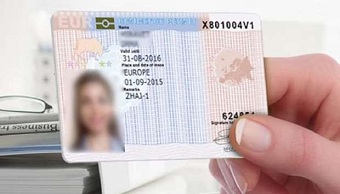ID cards issued to EU citizens will need to include digital images of the holder’s fingerprints, the European Commission has proposed. The Commission wants to do away with any identity documents that are easy to falsify and can be used to enter the bloc from non-EU countries. The Commission said in its proposal that it would not oblige countries to introduce ID cards, but those countries that use them would be required to include two pieces of biometric data: an image of two fingerprints and a facial image.
Non-compliant cards should be phased out within five years, and within two years for cards that cannot be read by a machine. New cards should be valid for no more than 10 years.
Digital security alliance Eurosmart has welcomed the move, saying it and its members are fully committed in achieving the highest level of trust and security in particular in the fields of physical and digital ID documents.
“The Digital Security Industry welcomes the European Commission’s proposal to set common security standards across the EU in the line with the ICAO requirements, and stresses the fact that facial and fingerprints data stored on a certified secure element, remains the best option to prevent bad uses and falsifications.” “National ID cards and electronic passports, which are likewise used in Europe to travel, by embedding a harmonised contactless secure element storing the face and fingerprint biometrics will help to increase security within the Union” said Stefane Mouille, Eurosmart President.
The proposal will contribute to reduce the space in which terrorists and criminals are able to operate by creating an interoperability between the different national ID cards, so that all the EU citizens can exercise their free movement rights in a harmonized and highly secure way. “We are pleased to see European Commission promoting technologies that are certified under the SOGIS MRA scheme in such a highly sensible use case” complimented Mouille.
The use of this secure technology opens the door to a wide spectrum of new features that could help both business and citizens in everyday life such as electronic identification, e-signature and trust services for electronic transactions in the internal market as set out by the 2014 eIDAS regulation [3].








